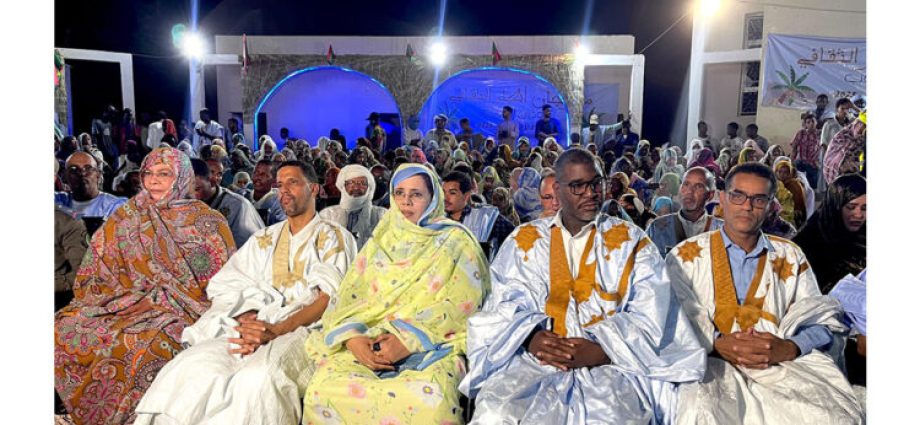Atar Cultural Festival Closes with Emphasis on Heritage and National Unity
The recent closure of the Atar Cultural Festival in Mauritania was marked by celebrations of tradition, talent, and community spirit. Held in the historic region of Adrar, the festival brought together artists, athletes, and local leaders in a vibrant display of cultural pride and national solidarity.
A Platform for Heritage and Development
In his closing address, Mr. Sid Mohamed Ould Soueilem, Deputy Governor of Adrar, highlighted the festival’s significance as a model of diligence and cultural revival. He emphasized that events like these are essential for preserving Mauritania’s rich folkloric heritage and aligning with the broader vision of national progress.
“This festival serves as an inspiring example of how we can honor our past while building our future,” Mr. Soueilem stated. He drew attention to the government’s commitment, under President Mohamed Ould Cheikh El Ghazouani and Prime Minister Mokhtar Ould Djay, to support initiatives that strengthen cultural identity and promote sustainable development.
Youth Engagement and Talent Discovery
One of the standout themes of the festival was its focus on youth involvement. Mr. Soueilem noted that such gatherings provide invaluable opportunities for young people to showcase their talents, engage in healthy competition, and contribute to the nation’s comprehensive development.
From traditional games like “Akroor” and “Thamat” to modern sports tournaments, the festival created a space where emerging talents could shine. But it wasn’t just about competition—the event also fostered a sense of community and shared purpose among participants and attendees alike.
Celebrating Tradition Through Sport and Art
Traditional Mauritanian games took center stage during the festival, reminding everyone of the deep roots that connect the present to the past. Activities like weight throwing and football tournaments drew enthusiastic crowds, while cultural performances—including religious praises, folk songs, and poetry—added depth and meaning to the celebrations.
These elements weren’t just for entertainment; they served as a living archive of Mauritanian culture, ensuring that time-honored customs continue to resonate with new generations.
Community Spirit and Humanitarian Efforts
Beyond cultural displays, the festival also highlighted the spirit of giving back. Organizers were commended for their efforts in promoting blood donation drives and supporting patients with kidney failure—a testament to the event’s role in addressing social and health challenges.
This humanitarian dimension reinforced the idea that cultural festivals can be powerful vehicles for community support and public awareness.
Honoring Contributors and Winners
The closing ceremony was a moment of recognition and gratitude. Honorary certificates were presented to notable figures from Adrar, acknowledging their contributions to the region’s cultural and social landscape. Meanwhile, winners of the various championships held during the festival received prizes, celebrating their achievements in sports, arts, and traditional games.
These gestures underscored the importance of valuing both individual effort and collective heritage.
Looking Ahead: Culture as a Catalyst for Unity
As the festival came to a close, Mr. Soueilem reiterated the role of cultural events in promoting national unity and economic vitality. By focusing on sectors like tourism and agriculture, the festival demonstrated how cultural initiatives can align with broader developmental goals.
In a world where modernization often overshadows tradition, the Atar Cultural Festival stood as a reminder of the power of cultural roots to inspire progress and foster cohesion.
Conclusion
The success of the Atar Cultural Festival reflects a growing recognition of the importance of cultural preservation and youth engagement in Mauritania. With strong support from local and national leadership, events like these are poised to play an even greater role in shaping the country’s future—honoring the past while embracing the opportunities of tomorrow.
For more detailed insights, we encourage readers to refer to the original source.


